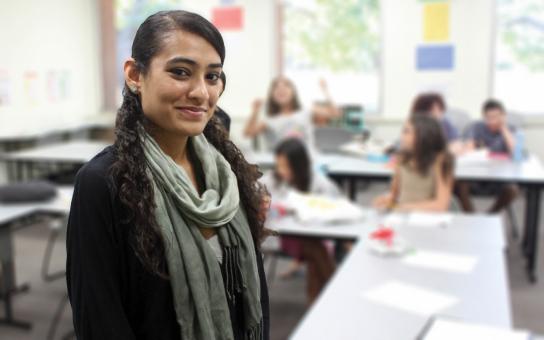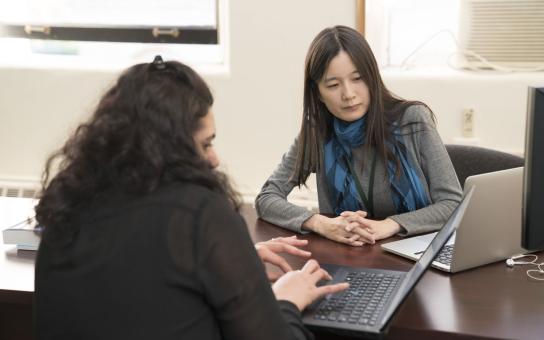Bachelor's in Women's and Gender Studies, BA
Embrace gender justice at Roosevelt University
Explore multiple perspectives on issues concerning women, gender and sexuality. You’ll examine social institutions and networks of power while thinking about avenues of resistance, justice and transformation.
Loading...
Why Roosevelt for Your Bachelor’s

Hands-on learning
Our Chicago Campus will enrich your academic experience as well as your resume. Working professionals partner with us in events, guest lectures and courses.

An intersectional perspective
At Roosevelt, you’ll analyze gender and sexuality in relation to race, ethnicity, class, culture, nationality and ability. Explore the many factors that shape experiences, identities, cultural productions and ways of knowing.

Focus on gender justice
Chicago has long been a site of gender justice. Our program walks in the footsteps of one of our namesakes, Eleanor Roosevelt.
“Roosevelt really challenges you to think about how the issues you study affect the world around you.”
Rose Poplawski, BA ’22